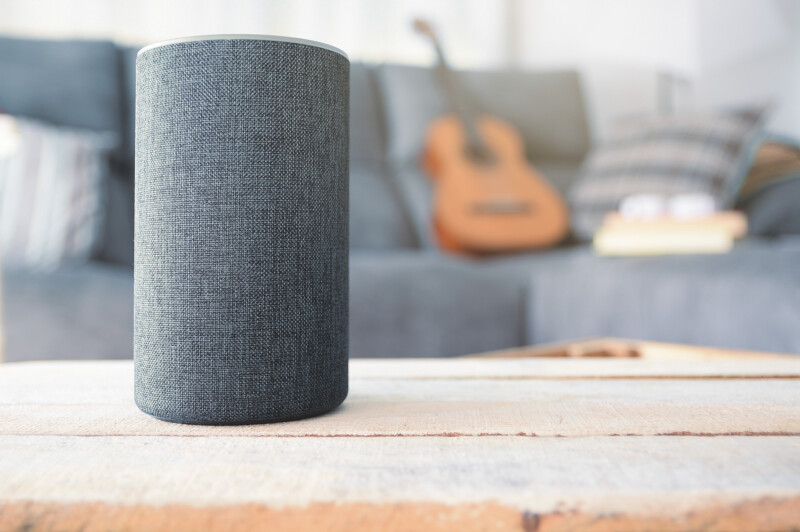Talk and Shop

- Consumers miss hardware displays when making purchases
- Photos: Shutterstock

The pandemic is boosting the development of voice-controlled shopping options.
Voice commerce has often been hailed as the next major evolutionary step in retail, but at the beginning of the year, market participants were still pulling back expectations. When Covid-19 turned up as an unexpected game changer, voice driven buying found itself back in the spotlight.
With Siri, Alexa, Bixby, Microsoft Cortana or Google Home Assistant, the giants offer the tech, and many large retailers such as Walmart, with its voice-ordering service, have made use of them. But disillusionment depressed sales figures earlier this year, showing slower growth even as more and more people began to use voice-assistant-enabled devices. In February, Swedish company Episerver published a survey of consumers in the USA, UK, Australia, Sweden and Germany: a third said they avoided voice-enabled devices for purchases due to security concerns. Also published in February, a study from eMarketer corrected its own forecast from the previous year downward. In addition to security concerns, critics cited as an argument the lack of a screen on most devices.
The Covid pandemic and resulting lockdown, however, led to an explosion in the number of voice users and the frequency of requests. Tom Taylor, senior vice president of Amazon Alexa, speaks of an “enormous increase” and says that during lockdown, “people built a close relationship” with Alexa. In house stats on the use of Amazon Skills or recipe searches support this thesis, but the Seattle-based company and its competitors are still holding back concrete data on voice commerce. Nevertheless, Amazon presented a new Alexa app at the end of August, which, with a personalised home screen, is intended to make it easier to visually manage orders triggered by voice.
Google is also taking concerns expressed by consumers in the spring seriously. The director of product, Barak Turovsky, told VentureBeat that speech technology should become a “multimodal” experience because voice commands currently can only produce a few search results instead of the pages of links you get on a conventional search engine query. His company’s partnership with French retail giant Carrefour shows that voice commerce is picking up speed in Europe once more. Since June 2020, customers have been able to personalise their grocery orders at home with Google Voice Assistant.















